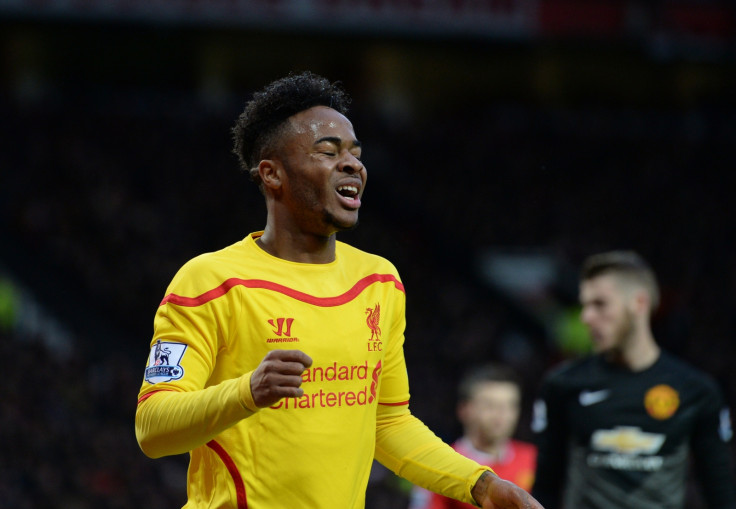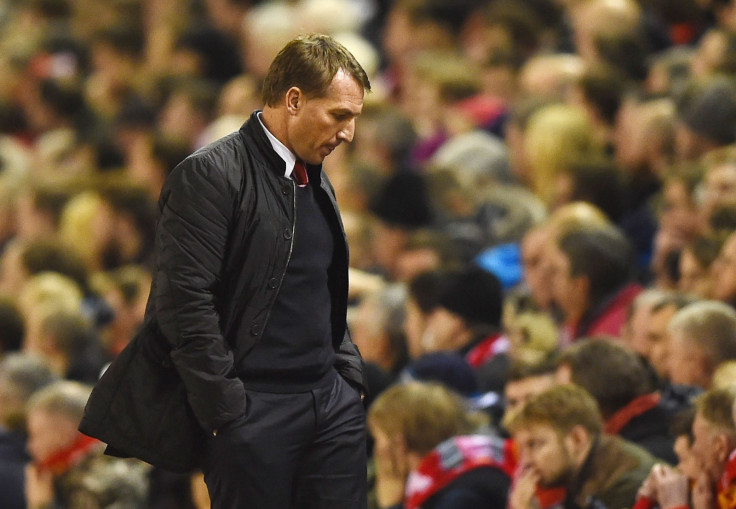Liverpool must move heaven and earth to tie Raheem Sterling to a long-term contract

One of a great many talking points emanating from Anfield just now is the future of Raheem Sterling. If rumours are to be believed, Liverpool's 20-year-old starlet is stalling on the offer of a new contract, one said to be worth £70,000 per week.
Of course the prospect of any 'kid' earning such handsome rewards sparks heated discussion. A fair majority would damn this concept outright and lament football's swelling wage structure, their objections justified if largely ignored.
For the fact is football equates to big business, its wealthiest clubs caring little for age, reputations and even decorum. In a dog-eat-dog world, the likes of Manchester City, Real Madrid and Chelsea would happily eat up their competition for the slightest gain.
That is exactly why Liverpool cannot afford a complete breakdown in negotiations.
Sterling has been a rare bright spot in an otherwise turgid season. The fact he attracted huge criticism for a recent and profligate trip to Manchester said as much about his teammates' failings as him personally.
Indeed, that a club the size of Liverpool should be pinning all their hopes on someone a week into his twenties is absurd. Sure his finishing was wayward against United, but do not let that disguise the fact he was again the Reds' only hope of rescuing something that afternoon.
It is testament to the player's character that he bounced back with a match-winning performance at Bournemouth 72 hours later. The difference, again. This on-field overreliance, however, is in no way reflected in contract talks.
If the deal tabled was indeed fixed at £70,000 a week it smacks of mediocrity, a football club doing things on the cheap.
Just put that into context. Manchester United tumbled out of the Champions League last season only to embark on an aggressive recruitment drive, part of which was a £265,000 contract for Radamel Falcao. Their oldest rivals, meanwhile, are reluctant to etch northwards of £70,000 a week for their standout player. Therein lies the difference.
Sterling is well within his rights to argue relative poverty. The likes of Mario Balotelli and Glen Johnson have been utterly dreadful this term but command wages of £90,000 and £120,000 a week respectively.
Sterling is not the only player disenchanted with the moneymen. Many were shocked to see captain Steven Gerrard declare an interest in sampling a different kind of football, aged 34. A calculated soundbite, this came days after a contract offer on significantly reduced terms. It may be simplistic to equate subsequent form and dressing room unrest to such a stand-off, but a palpable tension lingers.

Gerrard's situation is another example of mismanagement within the offices of Anfield. Owners FSG would again be well served glancing down the East Lancs Road and taking stock of how United handled the onset of Father Time. The likes of Paul Scholes and Ryan Giggs were retained with minimum fuss, their legacies secured. Crucially, matters were kept in-house.
If Gerrard, perhaps Liverpool's greatest-ever player, is allowed to leave Anfield it would signal a PR disaster. The same is true of Sterling, for completely different reasons.
Juggernauts such as Madrid and Bayern Munich have already been linked with this precocious talent; one awarded the prestigious European Golden Boy trophy last week. Previous recipients of that accolade include Wayne Rooney, Lionel Messi, Cesc Fabregas and Sergio Aguero. Like the aforementioned, Raheem's career is set to go stratospheric. He certainly has all the tools.
Having lost Luis Suarez, Liverpool's status as a selling club, one relegated to the second tier of footballing giants, would surely be confirmed with Sterling's departure. That cannot happen.
The malevolent presence of agents undoubtedly muddies the waters. This impasse is only public knowledge because of a tactical leak, the latest in a series from Sterling's camp. That is of course distasteful and an approach rightfully condemned by former teammate Jamie Carragher.
Nevertheless Liverpool need to wise-up and play the game. Right or wrong it is players, not clubs, who hold all the cards. FSG must relent and propose revised terms immediately.
A lukewarm reception marked their purchase of Liverpool in 2009, suspicion held over from fraudulent landlords past. Though progress has since been made on and off the field, many still question the owners and their admirable yet ultimately flawed Moneyball approach.
To some this mantra makes fine business sense but football supporters care little for spreadsheets and profit margins. Indeed a throwback to the days when Peter Robinson ran Liverpool so masterfully are longed for. The latter oversaw a slick operation behind the scenes, his inconspicuous nature deliberate and central to a winning formula.
Football may have changed but the fact is good players win you games and trophies. If Liverpool are serious about achieving both they need to resolve this issue fast. Raheem Sterling has become more than an accomplished footballer; he is now an unsuspecting fork in the road and a test of Liverpool's long-term ambition. It is a test they have to pass.
Aaron Cutler writes for the hugely popular Liverpool fan site This is Anfield, and is also a feature writer for Country Music People Magazine.
You can follow him on Twitter @aaron_cutler, and find out more about This is Anfield via either their website or Twitter feed.
© Copyright IBTimes 2025. All rights reserved.





















